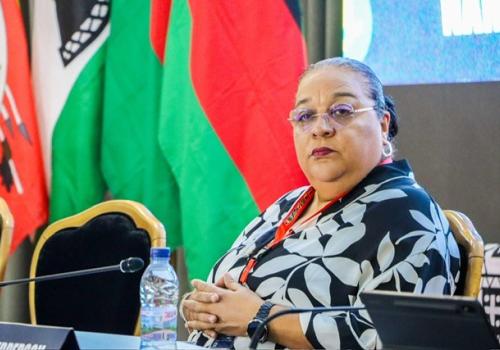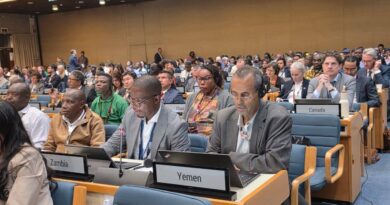SADC Ministers and Social Partners Unite to Combat Child Labor and Promote Decent Work
Ministers of employment and labor, alongside social partners, convened in Lubango, Republic of Angola, in a resolute stance against the scourge of child labor and in a bid to bolster decent work across the Southern African Development Community (SADC).
Led by Honourable Teresa Rodrigues Dias, Minister of Public Administration, Labour, and Social Security of Angola, the annual meeting underscored the imperative for concerted action to eliminate exploitative labor practices and foster a conducive work environment.
Central to the discussions was the commitment to implement the SADC Protocol on Employment and Labour, ratified by Angola, Eswatini, and Malawi. This protocol serves as a pivotal instrument to establish minimum labor standards, eradicate forced labor, child labor, discrimination, and violence in workplaces, while promoting employment as a cornerstone for sustainable poverty alleviation.
Acknowledging the sluggish pace in ratifying International Labour Organization (ILO) conventions, ministers vowed to develop action plans to expedite the process, seeking support from the ILO to conduct gap analyses.
Additionally, the meeting urged member states to intensify efforts in implementing National Employment Policies to boost job creation and reduce labor underutilization.
The gathering endorsed various initiatives aimed at enhancing labor market dynamics, including the establishment of a Labor Market Observatory (LMO) to facilitate data-driven policy formulation and decision-making.
Furthermore, ministers emphasized the alignment of national education and skills development policies with employment strategies to ensure a seamless transition into the workforce.
Addressing the pressing issue of migration, stakeholders highlighted the importance of ratifying the SADC Protocol on Facilitation of Movement of Persons to promote skills mobility and trade across the region. Multisectoral collaboration was emphasized as pivotal in addressing migration challenges effectively.
On the frontline against child labor, ministers urged the implementation of dedicated National Action Plans, harmonizing admission ages into employment with compulsory education completion ages to safeguard children’s educational rights.
They called upon international partners to support member states in developing and implementing these plans, stressing the need for increased budgetary allocations and robust data collection mechanisms.
In a bid to enhance labor dispute resolution mechanisms, ministers endorsed a Model Framework for Autonomous Labor Dispute Resolution Systems, urging its domestication at the national level.
The meeting concluded with a visit to the Local Entrepreneurship Centre in Lubango, a testament to Angola’s commitment to fostering entrepreneurship and economic development.
Attended by representatives from 13 member states, as well as stakeholders from the private sector, trade unions, and international organizations, the gathering reaffirmed the collective resolve to combat child labor and promote dignified work environments across the SADC region.
Additional source: SADC



